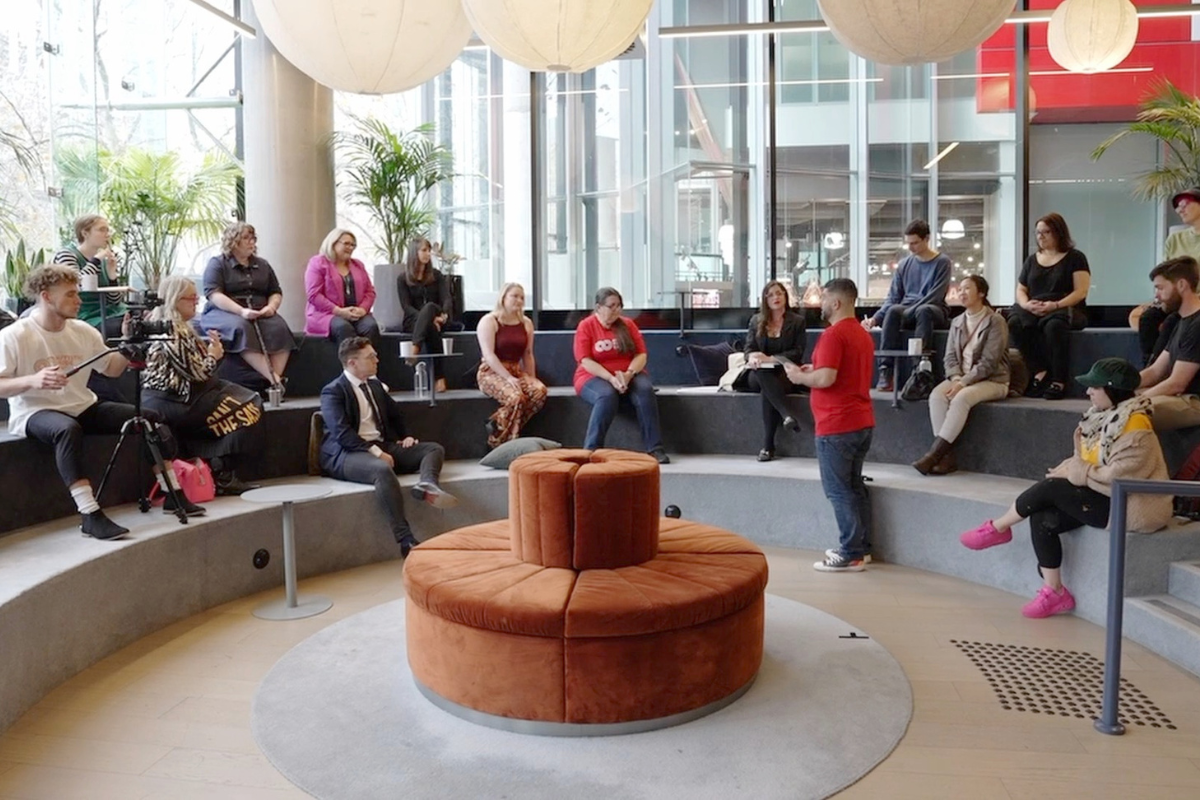
Think Neurodivergence: Autistic Pride and Entrepreneurship
Just Gold held an interactive webinar to share insights and lived experiences from autistic social entrepreneurs and encourage the social enterprise sector to create inclusive, affirming environments for neurodiverse thinking and practice.
Summary
This webinar invites social enterprise leaders to:
- Learn from lived experiences of how language shapes perception and influences the experiences of autistic individuals in the workplace.
- Engage with lessons learned and practical advice to help build your capability to support neurodiversity within social enterprises.
- Reflect on your role, power and opportunity to create supportive environments that leverage the strengths of neurodiverse talent and foster an inclusive, thriving workforce.
Show notes and quotes
Some powerful reflections and calls to action from this learning gift:
Kyriakos Gold: “Some practical things that I've recommended to neurotypical environments…Be very mindful of the stigma and the biases that come with the diagnosis [of autism]. This is a very private thing, your diagnosis - it also creates stereotypes, like having an autistic person in your team and thinking they're going to be loud or thinking that they're going to be good at math or thinking they're going to be good or bad at this. Build that first understanding of asking, ‘what are the practical things that we can do for you’? ‘Is it a different briefing process’? …It’s exactly the same with thinking about every human being. None of us are made the same way. We all have a very different programming, conditioning and understanding of life.”
Dr Sharon Zivkovic: “If we go back 45 years ago, when the term social entrepreneurship was first coined, the definition back then had nothing to do with having a business. It was about creating systems change and it was about social innovation.”
Rebecca McCash: “We're natural systems thinkers and this can mean that we often get to the root of problems rather than the surface level of what the problems may appear to be. We can really dig deep and find where within that system the problem is beginning and where we can target to create change. I think we're a little bit tenacious as well. And that helps the idea that we get attached to a problem, not a solution. I know that I will always be attached to the problem of trying to make the world better for neurodivergent people. How I do that might change over time and evolve, but it means that yes - it's a laser kind of focus.”
Anita Aherne: “I think the authenticity that comes with our mission and our passions really sets us apart as neurodivergent leaders and entrepreneurs. We can't fake it. We're either in it or we're not.”
“As a neurodivergent entrepreneur, it's really important for us to really look within ourselves and find out what our strengths are and leverage those strengths and ask for help on those things that we aren't very strong with. I've only recently learned to ask for help because, up until recently, asking for help was [seen as] an admission of failure. In the business world, as we are becoming more vocal and more informed and more educated on how neurodiversity works in business and in entrepreneurship, I think there comes strength with asking for help and for guidance and working on our strengths and giving ourselves permission that it's okay not to follow those linear lines in business, that we can actually veer off and feed to our strengths.”
Georgia Prattis: “A lot of what I'm hearing is that the onus of responsibility around creating those inclusive spaces rests with the person that is neurodivergent. It’s really reinforcing and highlighting how much our workspaces, as much as any other space we engage in, is defined around those unspoken rules that have been designed by those in power and privilege who have the voice. So intersectionality is about unpacking and dismantling those systemic and structural barriers…Think of neurodivergence. Why do we call it neurodivergence and then we call other people neurotypical? Because the world has been designed - those systems of power and privilege have been designed - in a way to preference and privilege people who are neurotypical.”
Explore more
For those who are keen to dive deeper and do differently, here are a few links to learnings and resources mentioned by the speakers and/or related to the open learning topic.
- United Nations World Autism Awareness Day, 2nd April.
- Think Autism Sydney Conference and Community Workshops.
- Australian federal Department of Social Services National Autism Strategy.
- Autistic Social Entrepreneurship and Systems Thinking: A Neurodiversity-Affirming Approach.
- Design Justice: Community-led practices to build the worlds we need.
- Australian Sports Commission: Roadmap: An all inclusive approach to governance and leadership in Australian sport.
- Think Neurodivergence conversation video series by Just Gold:
- Part 1 - Understanding Neurodivergent Strengths in Social Enterprise [8 mins 15 secs].
- Part 2 - Creating Inclusive Workplaces and Business Structures [10 mins 42 secs].
- Part 3 - Intersectionality and Neurodivergence in Leadership [4 mins 50 secs].
- Part 4 - AI, Technology, and the Future of Work [2 mins 20 secs].
- Part 5 - Practical Strategies for Social Enterprise Leaders [3 mins 45 secs].
- Part 6 - Looking Ahead: The Future of Neurodivergent Leadership [2 mins 20 secs].

We’d love to hear from you!
Reach out to one of our team members, and share input and ideas about how we can evolve Understorey.
Get in touch